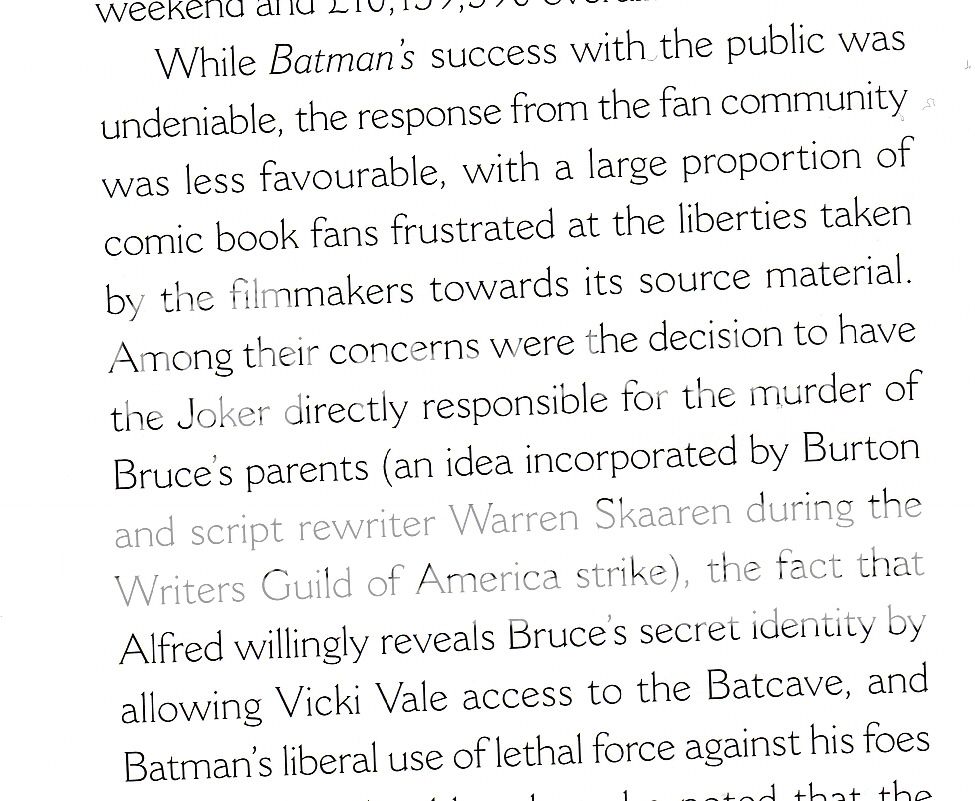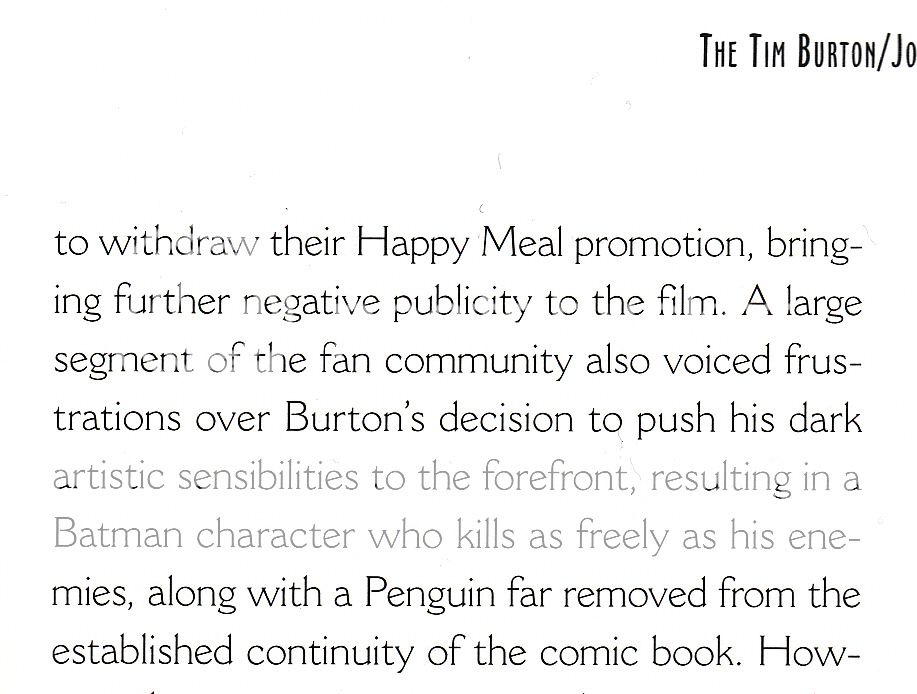I just don't get this overly simplistic notion that people can't come back from as dark a place as killing in the name of justice or protection.
I recently watched Michael Moore's new documentary Where to Invade Next? and one of the places he visited was Norway where he explored their criminal justice system. He specifically highlighted how a man who terrorized a group of young people on an island a few years ago, killing dozens of people, was only sentenced to 21 years in prison (Norway's maximum sentence). He wasn't even killing thugs like Batman supposedly did. Anyway, unlike America's prisons, the focus of imprisonment in Norway and elsewhere is genuine rehabilitation.
When Batman or Batman's fans talk about his being tainted by a kill, the only way in which that makes sense on a personal level is the guilt that would haunt him, and the only way it makes sense on a fan level is if Batman cannot be forgiven and appreciated in his reformed state; because it's not like once you've become a killer, you cannot stop yourself from repeating that behavior. In fact, a person who has known darkness, felt its weight and its nightmares, and found the way back to the light may be even wiser and stronger in the face of similar situations in the future.
Context also matters. I have a book called Superheroes and Philosophy that explores ethical and moral issues, including killing. It does not serve us well to examine heroes' behavior in shades of black and white. For example, the recent events in Nice, France required that the driver of the truck be shot and killed so that he wouldn't run over anyone else on the street. Of course we can all hope for there to be a better way or some avenue which allows a prospective hero to act most in line with the highest of ethical and moral virtues, but reality...life...it's not like that.
People make mistakes or go to dark places because they're put in difficult positions or they lose their way. It doesn't do any good to pretend that this cannot happen or, if it does, that it casts an inescapable shadow.
"Of course we can all hope for there to be a better way or some avenue which allows a prospective hero to act most in line with the highest of ethical and moral virtues, but reality...life...it's not like that. "
And the entire point of Batman, of devoting a lifetime to training, so that he IS that better way. This isn't real life, this is a comic book (movie,) and, even if you are going to ground it in "realism," Bruce's entire purpose is to be able to be better than that.
Bruce believes that IF he's going to act, to intentionally put himself in these situations, he must have the skills and tools for every possibility. If HE is going to do, he must be BETTER than that. It's not that a good person can't cross certain lines, or that a hero can't, it's that HE can't let himself.
It's an unrealistic, impossible standard, but that's exactly who Bruce is, and that's what makes him, and ONLY him, Batman.
It's also not that redemption is impossible for people, it's that, for BRUCE, it is a line that HE does not see a return from. He would not be able to forgive himself for it, but it's also about his restraint.
Batman is a master of control over himself. If he allows himself to cross that line, that means he has lost that control over himself, and his darkness within. Bruce knows that, deep down, his rage is a very lethal beast that he must channel. If it is unchained, he does not see anyway to get it back under control.
It's not that it's not possible, it's just that Bruce doesn't
believe it is. In his eyes, even if he could come back from crossing that line, he would never be the same again.
Just speaking for myself and how I interact with Batman's characterization in the DC Film Universe, I would never attempt to argue that it is in character for Batman to kill. It is absolutely correct that Batman has consistently upheld a "no kill" policy, and that this code has been a cornerstone of some of his most successful and memorable stories.
What I would argue, with regards to Snyder's take on Batman, is that his Batman's shift away from this iconic code is purposeful. Snyder wanted to tell a story about a Batman who had been broken by great personal tragedies, decades of Sisyphean attempts to save Gotham from itself, and most recently PTSD triggered by the Kryptonian invasion and attack on Metropolis.
This Batman is intended to be out of character, and the fact that the audience recognizes that this Batman is decidedly different is Snyder achieving his desired effect. Now, the question is: Did Snyder break his Batman in order to convince the audience that a more brutal Batman is a better or cooler Batman? I think the narrative of the film itself makes it very difficult to make a case for that reading.
Batman v Superman: Dawn of Justice seeks to interrogate what could possibly break Batman, and ultimately what could bring him back to the light. I think what matters most is if this is a worthwhile story to tell, and if so, was it a story that was told well.
I loved it.
I recognize that this was what Snyder was going for, and I can accept it enough to allow myself to enjoy the film (and I do,) AND I think that it CAN work in the film(s), I just do not think it was necessary, and I believe they could have told a much stronger arc for Bruce without it.
He broke his own rule in that trilogy, arguably multiple times.
Yup, Nolan's films were far from perfect. They made several steps I wasn't a fan of. That may have also been part of their thesis, that Bruce's "one rule" is flawed in a real world; that one cannot hold to such absolutes in an imperfect world. Despite Joker 'conceding' "You truly are incorruptible," Bruce ultimately still breaks his one rule to save Gordon's son.
Similar to Snyder's decision, I can understand certain choices, but I believe they were not necessary, and could have been handled differently.
Ultimately, despite "breaking his one rule" in every film, the Nolan films were a HUGE leap forward in regards to Batman's 'no kill' rule.
Arguably Batman Forever portrayed the 'no kill' approach the "best," despite keeping the Burton films as (pseudo)canon, and thus having Bruce being a "reformed" killer. Although, even then he ultimately is responsible for Two-Face's death.






